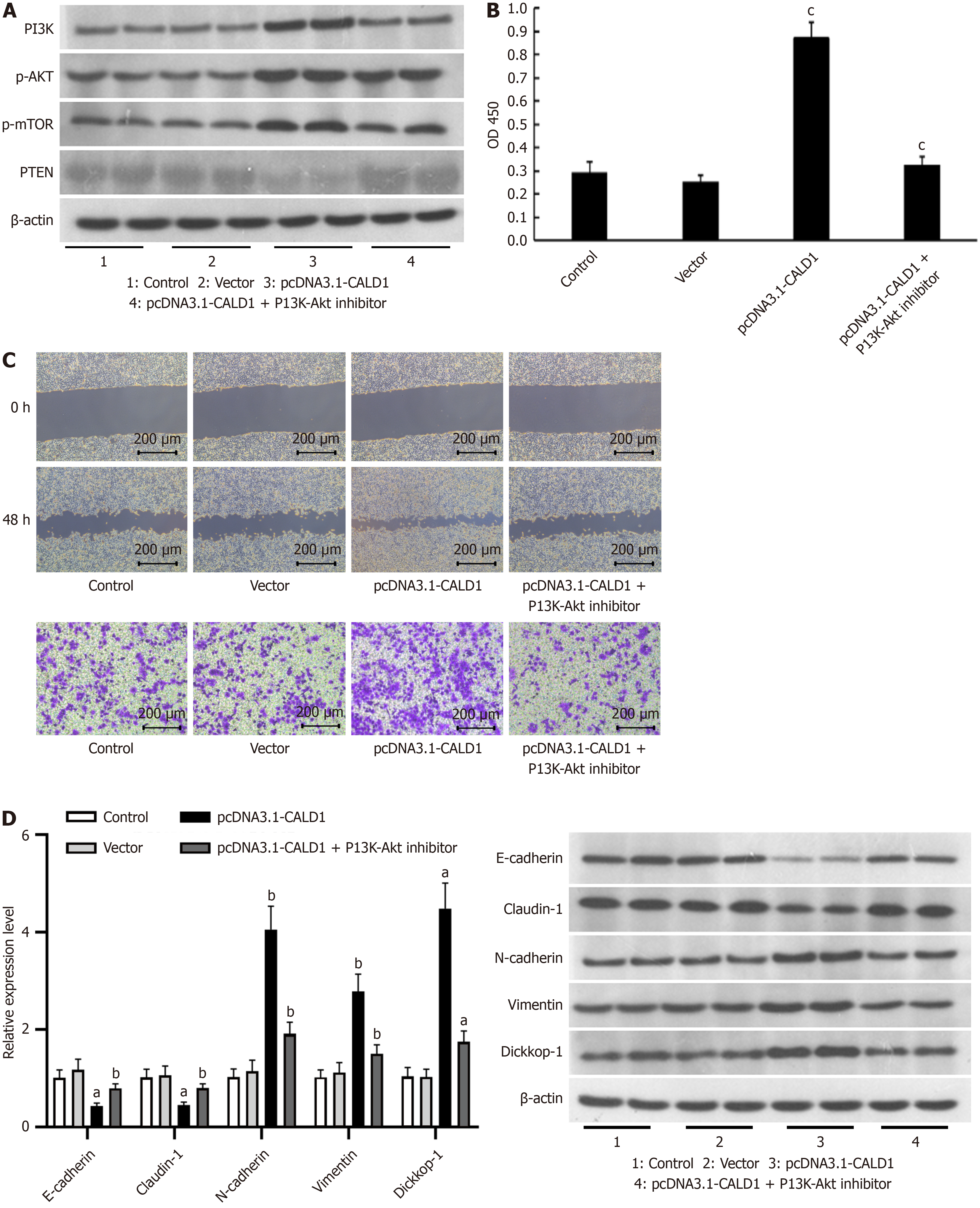Copyright
©The Author(s) 2024.
World J Gastrointest Oncol. Mar 15, 2024; 16(3): 1029-1045
Published online Mar 15, 2024. doi: 10.4251/wjgo.v16.i3.1029
Published online Mar 15, 2024. doi: 10.4251/wjgo.v16.i3.1029
Figure 4 Effects of CALD1 modulation and PI3K-Akt inhibition on tumor cell activity, migration, and EMT-related gene expression.
A: Up-regulation of CALD1 enhanced the expression of PI3K, p-AKT, and p-mTOR, members of the PI3K-Akt pathway, whereas PTEN expression was weakened; the addition of a PI3K-Akt inhibitor attenuated the expression of PI3K, p-AKT, and p-mTOR, while the expression of PTEN was enhanced; B: CCK-8 results showed that showed that the effect of CALD1 on tumour cell activity was weakened after adding a PI3K-Akt inhibitor (blank group-moderate activity, negative group-moderate activity, CALD1 overexpression group-high activity, CALD1 overexpression + inhibitor group-moderate activity or slightly high activity); C: Scratch and Transwell assay results showed that the effect of CALD1 on tumour cell migration and invasion was weakened after adding a PI3K-Akt inhibitor (blank group-moderate, negative group-moderate, CALD1 overexpression group-strong, CALD1 overexpression + inhibitor group-moderate or slightly strong); D: CALD1 overexpression, alone or in combination with PI3K-Akt inhibition, resulted in corresponding changes in EMT-related genes and proteins in AGS and MKN45 cells. aP < 0.05, bP < 0.01, cP < 0.001.
- Citation: Ma WQ, Miao MC, Ding PA, Tan BB, Liu WB, Guo S, Er LM, Zhang ZD, Zhao Q. CALD1 facilitates epithelial-mesenchymal transition progression in gastric cancer cells by modulating the PI3K-Akt pathway. World J Gastrointest Oncol 2024; 16(3): 1029-1045
- URL: https://www.wjgnet.com/1948-5204/full/v16/i3/1029.htm
- DOI: https://dx.doi.org/10.4251/wjgo.v16.i3.1029









